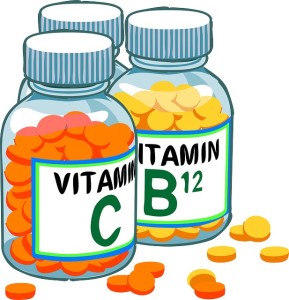 Guest post by Sharon Brooks
Guest post by Sharon Brooks
Registered Nutritionist, Food Scientist & Yoga Teacher
BAppSci (Food Sci & Nutr), G Cert Hum Nutr, RNutr
Nutrition Society of Australia Committee Member (Victoria)
200hr Qualified Yoga Teacher
Drug and alcohol abuse can cause biochemical alterations in the body. One fundamental aspect of this is the possible long-term damage to immune system strength. The immune system includes white blood cells, lymph vessels and nodes, spleen, thymus gland and other lymphatic tissues. This system provides a defence against foreign particles and pathogens. In other words, the immune system attempts to distinguish between “self” and “non-self”. It is therefore a crucial component in ridding the body of toxins and toxic build-up in drug recovery.
The other core bodily system commonly impacted by drug usage is the digestive system, which includes the mouth, oesophagus, stomach, intestines, liver, gallbladder and pancreas. The digestive system is fundamental to the body’s ability to absorb nutrients that boost immune strength. As such, indirectly the digestive system is just as important to immune health as the immune system itself.
The Human Body
Individual bodily systems do not work independently. There are complex networks and connections; therefore the health and well-being of all systems is important for sustaining healthy digestion and immune strength - especially in drug recovery.
However, to simplify this mammoth arena and to provide user-friendly recommendations, the focus of this synopsis is digestive health. The body’s ability to digest and absorb adequate nutrients is vital for healthy living. It is even more crucial for healing in the immune-system response.
Individual responses to drugs are variable, so the recommendations provided are targeted to that which would benefit the majority. This is irrespective of the type of drug(s) selected and the duration and frequency of the use and/or addiction. However, it is recommended that individuals seek professional guidance in order to attain a targeted approach to optimise their health and support recovery.
The Digestive System
The fundamental role of the digestive system is to perform mechanical and chemical processes for the breakdown of food particles, absorption and processing of nutrients and the elimination of waste. If the body does not receive adequate nutrients there are short-term and long term consequences.
Immediate responses to insufficient nutrients may include apathy, colds and flus, migraines and irritability. The long-term consequence is an increased risk of certain lifestyle illnesses and diseases such as anaemia, muscle wastage and bowel cancer. There is no benefit to a shortfall in nutrients.
The Importance of Gut Microbiota
Intestinal microbiota (formerly termed microflora) consists of an intricate group of more than 100 trillion microbial (i.e. bacterial) cells. These cells affect human metabolism and immune function. Disruption to gut microbiota or a deficit in good bacteria within the gut is associated with poor overall health, a weakened immune system and gastrointestinal conditions such as inflammatory bowel disease.
Probiotics, prebiotics and synbiotics promote the balance of good microbiota within the gut. They also strengthen intestinal lining, which heightens nutrient absorption and encourages normal immune responses. It is recommended that, irrespective of the drug of choice, usage duration and frequency, attention to gut microbiota be mandatory.
Inclusion of fermented foods is one method to enhance the presence of probiotics, prebiotics and synbiotics in the body. This includes yoghurt, kefir, miso, sauerkraut, kimchi and kombucha, to list a few.
Supplementation
It is common in our society for individuals to consume multivitamin and mineral supplements. However, for a healthy individual this practice is unnecessary. Adequate nutrients can be ingested through selecting wholesome foods most often.
Supplements tend to contain synthetic versions of nutrients in quantities the body does not require; excess water-soluble nutrients are filtered out by the kidneys into urine, and excess fat-soluble vitamins such as vitamins A, D, E and K may burden the liver.
However, for some people in drug recovery a supplementation regime may be appropriate. There will also be some cases where supplementation is critical to bodily repair. In these cases the consumption of vitamins, minerals and antioxidants in high doses is advantageous, even if they are synthetic in origin. The consumption of “natural” nutrients in these people may not provide any additional benefit.
Nutritional deficits will impede the ability to recover immune health and overall well-being. As such, an initial rapid bolus or infusion of nutrients would likely provide benefits. Recommended nutrient infusions and or supplemental pills would commonly include folate, iron, the B-group vitamins, vitamin C, vitamin D and vitamin E.
These nutrients boost gastrointestinal health, support energy production and vitality in the body, directly enhance immune functionality and encourage formation of new healthy cells. These are priority areas for drug recovery.
Real Food
It is important to note that consuming real food is vital. Although supplementation is recommended for the initial phases, optimal health and well-being relies on the consumption of fresh and wholesome produce.
Recovery
The ability for the body to resume immune-system health can be achieved through focusing on digestive health. It is important that a varied and balanced food intake be encouraged. This includes plenty of fruit, vegetables, nuts and seeds, whole and unprocessed cereals, meats, fish and dairy or suitable alternatives to the listed.
Finally, the depth of recovery and health improvements required may warrant a lifelong commitment. However, an enduring devotion to health should really be a priority for all.
Disclaimer
Please note nutrient requirements and their doses will be specific to the drug rehabilitation treatment and may therefore vary between individuals. It is recommended to seek professional assistance.



